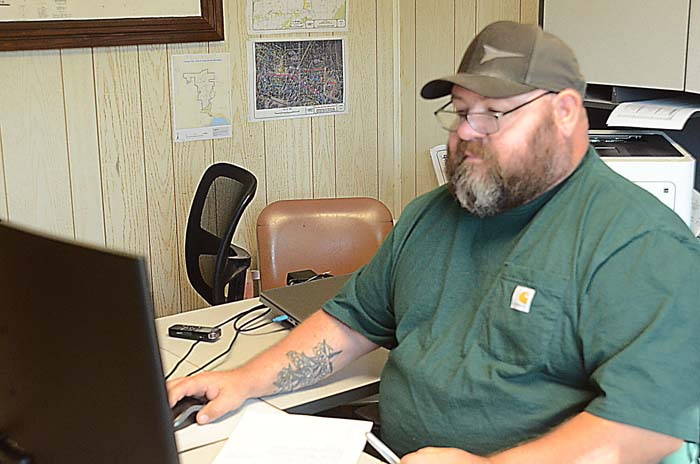Joseph joins program to help with planning work
Published 9:00 am Thursday, December 7, 2023

- Dan Larman, Joseph city administrator, works in his office in Joseph City Hall on Aug. 24, 2022. Joseph is the first Oregon community to participate in a new program intended to offer planning assistance to communities.
JOSEPH — Before construction workers start building housing units in the numbers called for by Gov. Tina Kotek, local governments need to plan for development.
But there’s a potential hang-up there, especially in rural communities throughout Eastern Oregon: Many rural governments often don’t have much expertise in creating documents such as comprehensive plans and buildable land inventories — key tools for community planning. Out of 59 cities spanning 10 counties in Eastern Oregon, just seven have access to professional planning staff.
Joseph is not one of those seven.
So when Dan Larman, the city administrator in Joseph, saw an email about a pilot program from the Rural Engagement and Vitality Center, he took notice.
The center, a joint initiative of Eastern Oregon University and Wallowa Resources, an Enterprise-based nonprofit organization, was launching a program intended to offer planning assistance to cities that don’t have the needed resources to tackle that work.
Larman thought the program was exactly what Joseph needed — and that’s how the city became the inaugural partner in the Rural Planning Program.
Grace Donovan, executive director of the REV Center, said the idea for the program came through conversations between the center and the state Department of Land Conservation and Development, which had long identified the need for planning resources among Eastern Oregon communities.
“There just aren’t a lot of planners out here,” Donovan said.
The idea of being a conduit to provide planning services to rural communities seemed a perfect fit for the REV Center and EOU, Donovan said.
“It ties in beautifully with the programs that are available here at EOU,” she said, including programs in public administration and public policy.
Donovan said she reached out to a number of Oregon communities to gauge their interest in participating. “Joseph was the one to raise their hand and said, ‘Yep, we understand what you’re trying to do, and we want to go for it,’” she said.
Joseph officials will work with EOU students and faculty members as the city creates a buildable land inventory. The goal is to also have participants work on policy analysis and code review — work that could lead to an update of the city’s comprehensive plan. The Joseph effort will be aided by a pair of consulting companies, ECONorthwest and Kearns and West.
A grant from the state Department of Land Conservation and Development is paying for the work, although the actual amount of the grant won’t be known until the scope of work for the project is finalized.
Larman estimated the work would take 18 months or so — and he emphasized that the project doesn’t commit the Joseph City Council to take any particular action. Rather, he said, it should give councilors and other city officials updated information they can use in making decisions.
And he’s hoping that other small Eastern Oregon communities will watch what happens in Joseph — and learn from the city’s work with the REV Center.
“Since we’re the first entity to take advantage of it, I know a lot of people are paying attention,” he said. “And I really hope that what we’re doing here helps other rural communities in the future. I hope it breaks trail for them.”





